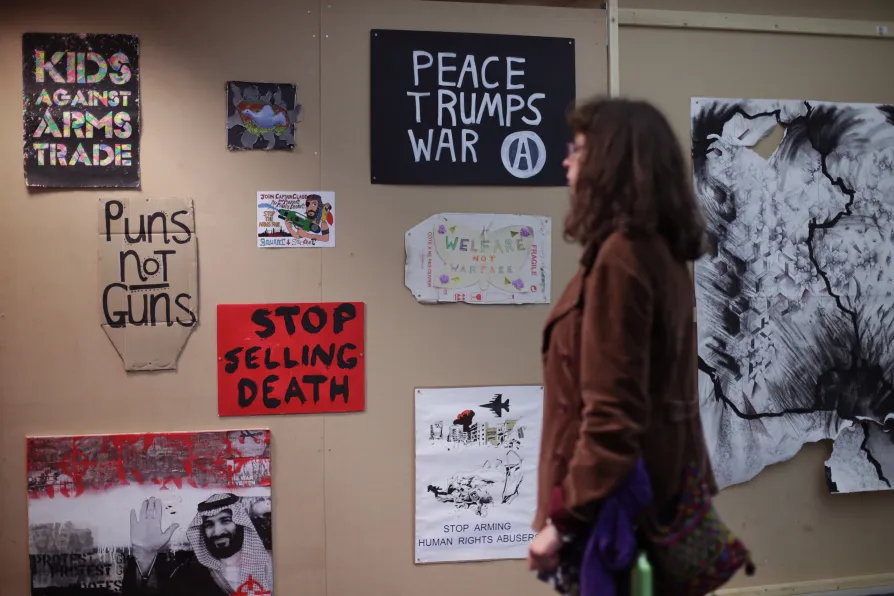As figures from Tucker Carlson to Nigel Farage flirt with neofascist rhetoric and mainstream leaders edge toward authoritarianism through war and repression, the conditions that once nurtured Hitlerism re-emerge — yet anti-war and anti-imperialist sentiments are also burgeoning anew, writes ANDREW MURRAY
DSEI is at last becoming seen as unacceptable
It’s important we keep up the pressure and expose the arms fair in London’s Docklands for what it is – a market in death, writes PAUL DONOVAN

 Work on display at the Art the Arms Fair art exhibition, to oppose DSEI
Work on display at the Art the Arms Fair art exhibition, to oppose DSEI
HAS anything changed with the DSEI arms exhibition over the past 20 years, aside from it getting bigger?
There has been much controversy surrounding the recent Defence and Security Equipment International (DSEI) arms fair at the ExCel centre in London.
Condemnation of the event has come from a number of quarters, including the mayor of London and faith leaders.
Similar stories

We will continue to gather, to protest, to bear witness and, yes, to sing carols against Israel’s genocide, whatever the police do to stop us, writes Palestine Solidarity Campaign director BEN JAMAL

From intimate venues to grand stages, Scottish singer-songwriter CALUM BAIRD finds Cuba’s cultural heart still beats strong while power cuts and sanctions fail to silence artistic expression.












